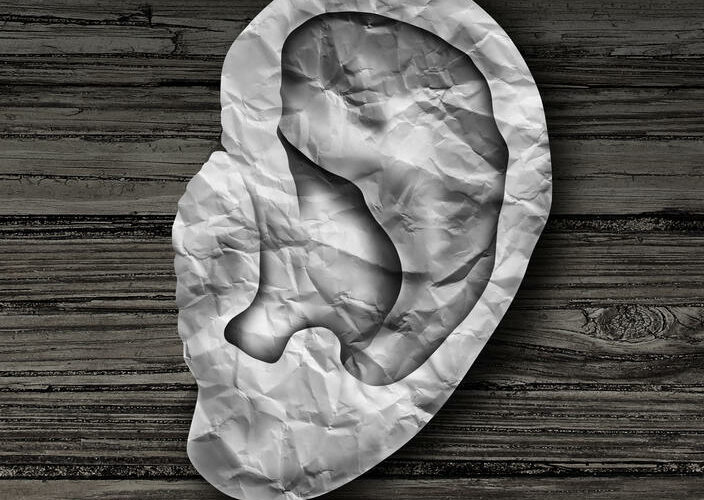There’s a well-documented resistance to getting and wearing a hearing aid. But what if you knew that wearing one could slow your rate of dementia or cognitive decline by as much as 75 percent?
While about 26.7 million older adults over 50 have a hearing impairment, only about 14 percent—one in seven—actually do something about it, according to a study led by researchers at Johns Hopkins. But research shows that investing in your hearing health could lead to big brain gains: A new study published in Journal of the American Geriatrics Society found that older adults’ memory capacity improved after they started wearing hearing aids by 75 percent.
Researchers tracked people from 2006 to 2014, testing them before and after they got the hearing aids using a word memory test.
“These studies underline just how important it is to overcome the barriers which deny people from accessing hearing and visual aids,” said researcher Piers Dawes, of the University of Manchester in England, in a statement.
It’s not just hearing aids that improve cognitive abilities; another study of over 2,000 adults in England found that the process of cognitive decline—problems with thinking and memory that naturally increase as we age—dropped by 50 percent in individuals who got cataract surgery.
“It’s not really certain why hearing and visual problems have an impact on cognitive decline, but I’d guess that isolation, stigma and the resultant lack of physical activity that are linked to hearing and vision problems might have something to do with it,” said Dawes.
In one study, people with hearing loss were 2.4 times more likely to have dementia and twice as likely to experience cognitive decline.
It’s never fun to get the news that your vision or hearing is declining, but a multitude of studies show that losing these senses causes people to spiral into dementia at much faster rates. In one study, people with hearing loss were 2.4 times more likely to have dementia and twice as likely to experience cognitive decline. Getting treatment for hearing loss has also been shown to improve symptoms of depression—another risk factor for dementia.
So why aren’t people who have trouble hearing getting treatment? Dawes said it may come down to stigma.
” … There are barriers to overcome: people might not want to wear hearing aids because of stigma attached to wearing them, or they feel the amplification is not good enough or they’re not comfortable,” he said.
In order to get more people access to hearing and vision aids, Dawes suggested screening for issues outside of a doctor’s office.
“Perhaps a way forward is adult screening to better identify hearing and vision problems and in the case of hearing loss, demedicalising the whole process so treatment is done outside the clinical setting. That could reduce stigma,” said Dawes.
Not only that, but technology is catching up with hearing aids.
“Wearable hearing devices are coming on stream nowadays which might also be helpful. They not only assist your hearing, but give you access to the internet and other services,” he said.
It’s not clear whether hearing and vision loss causes dementia or cognitive decline, or if losing these sense might be a sign that memory and thinking problems are on the horizon.
“Age is one of the most important factors implicated in cognitive decline,” said Asri Maharani, M.D., of the University of Manchester. “We find that hearing and vision interventions may slow it down and perhaps prevent some cases of dementia, which is exciting—though we can’t say yet that this is a causal relationship.”



